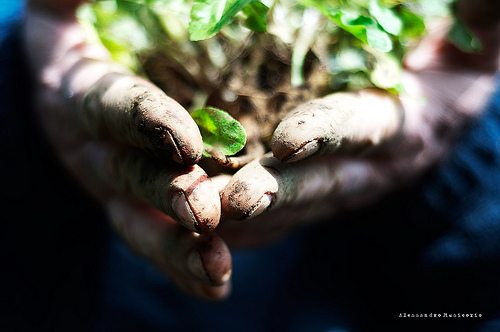

Economy
Success means seeing ourselves as part of the bigger system
I recently attended a conference where Janine Benyus, author of the inspiring book Biomimicry said, “We are all part of nature.” I agree, and if we all believe this, anything we do to undermine the integrity and strength of natural systems also undermines us.
How often do we put ourselves in the picture of a world full of connections, information flows and impacts? It’s easy just to see our direct relationships, to the people, places, institutions and the environment we interact with.
We often think only in direct transactions, our direct influence and the external responses to them. Do we seek information beyond this, looking to understand the unintended consequences of our actions, the indirect outcomes of the decisions we make? Most of the time, I’d suggest, no.
Why is this? In part it’s because we use our brains in the most efficient ways possible so that what we directly influence around us is of most importance to us.
Much earlier in human development, that was sufficient for survival when any impacts away from us rarely undermined our lives. Yet now they do, and it is often a default that we still focus on our immediate situation without reflection of the wider world.
In our modern lives, we don’t directly ‘pick up the bill’ for our actions, yet the negative impacts are shared with others, even far away (often called ‘externalities’).
If we closely analysed the relationships our demands have, then we would begin to recognise the social impacts of our desires for cheap consumer goods in factories in the far east and the consequences of our thirst for oil in the polluted communities of Nigeria. And if we really looked closely, we would see the impacts that climate change is having on almost every citizen on the planet.
In our professional lives, we often become more specialist, reducing our ability to figure out how the world around us relates to what we do as experts. We can become less aware of the unintended consequences of what we are doing.
Also, it’s likely that we miss out on the potential to collaborate or to learn from other fields which at first sight may appear irrelevant, yet may be essential in finding the new insight that is needed for transformational problem-solving.
By taking time to step back and understand our roles and actions, by reflecting how they relate to the wider system, we are able to think and design out potential problems that ultimately affect us and our future generations.
We can engage and respond to the actors that it relates to and we can utilise far more knowledge and information that exists within the system. It may initially feel like we are adding complexity by adding more information, and yes it may feel overwhelming at first, yet the learning we gather become the references we need for accelerating the development of superior, more complete and inclusive solutions.
We better design out problems that would emerge later on and by being aware of new knowledge and how this can challenge our assumptions and improve the outcomes.
Business can do this too by mapping out its activities, relationships, knowledge flows and so on. A business leading in sustainability integration, Interface, applies this systemic view in most of its work and this can be illustrated through new products including the use of ecologically damaging abandoned fishing nets from the Pacific Islands and recycling this into yarn for its carpet tiles (called Net Works).
We can do this where we live, by looking at how our communities function and our roles within them so we can create the groups that give us meaning and purpose and support our desire to thrive.
Transition Towns has been pioneering this in the UK, creating intelligent communities, collaborating to design and deliver effective solutions to many of the sustainability challenges local areas face. Where we really need this type of thinking are the many levels of government that could use it to effectively tackle many of our biggest challenges, though these are still places where systemic, collaborative and long-term leadership for sustainability remains weak.
If we are able to see the system we live in, be that on a local, national or global level, we begin to look at what it takes to make the area function and to identify what it needs to thrive within the sustainability constraints. From this, we can then understand the systems and sub-systems, the actors, impacts and positive outcomes we seek.
We understand our roles within the system, we begin to learn how our impacts affect people directly around us and also beyond us. We begin to empathise and realise it’s in our own interests to protect the environment of another on the other side of the planet and it’s in the interest of the person living there to contribute to my quality of life as well as everyone else’s on Earth.
Only when we are thinking at this level will we have fully recognised, accepted and celebrated our role truly being part of nature on this wonderful, beautiful planet.
Simon Goldsmith has worked in the sustainability arena for the past 20 years, working in many sectors from campaigning for environmental NGOs, to reducing the impacts of multinational oil and gas companies.
Further reading:
We need more people with complete sustainability literacy
What gets measured gets managed: sustainability in 21st century business
The business case for sustainability – an exceptional Forum for the Future event
Business rife with short-termism; just 7% feel pressure to deliver long-term returns


 Environment12 months ago
Environment12 months agoAre Polymer Banknotes: an Eco-Friendly Trend or a Groundswell?

 Features11 months ago
Features11 months agoEco-Friendly Cryptocurrencies: Sustainable Investment Choices

 Features12 months ago
Features12 months agoEco-Friendly Crypto Traders Must Find the Right Exchange

 Energy11 months ago
Energy11 months agoThe Growing Role of Solar Panels in Ireland’s Energy Future





























